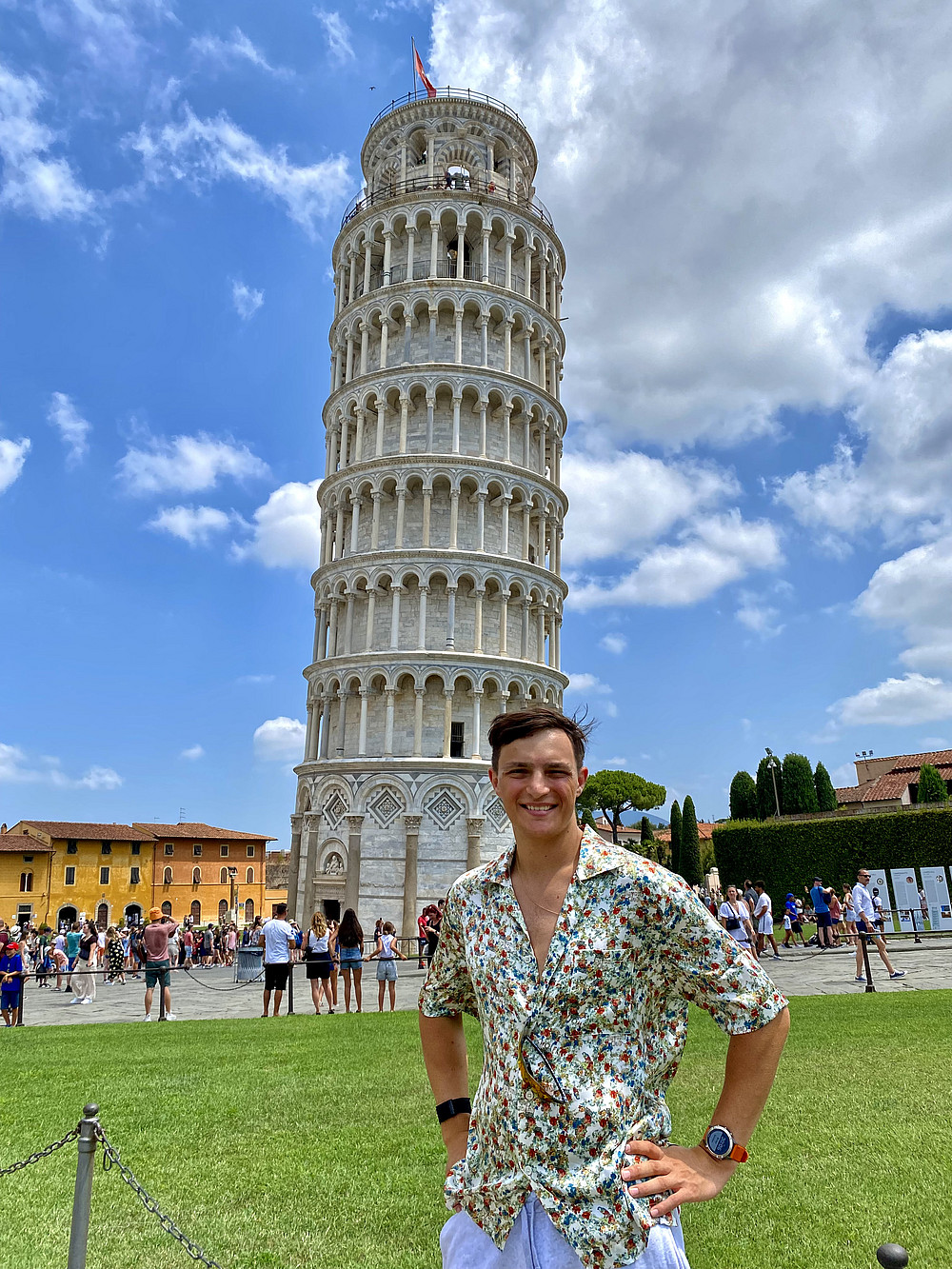Three questions for...
Get to know the people at the Department of Romance Studies
You have just spent a semester working at the University of Tübingen. What were your tasks in Tübingen and what do you take away from this semester?
In the winter semester 2023/24, I took on a temporary replacement at the Department of Romance Languages in Tübingen and stood in for the junior professorship for Romance linguistics. My tasks were - as in Graz - teaching and research in the field of linguistics. I held a master's seminar on varieties of Spanish in America and a bachelor's seminar on meaning change in Spanish and Portuguese.
During this semester, I was also able to exchange ideas and methods with my local colleagues, present and discuss my current research project and continue working on it. Like me, many linguists at Romance Studies in Tübingen work with corpus data, both historical data and data from today's spoken Romance languages. This intensive exchange was very exciting and profitable.
What exactly are you investigating in these language corpora?
I mainly deal with questions from the field of pragmatics. This means, for example, that I investigate how certain words or constructions develop new functions that can be inferred from the context and that go beyond what is literally said. This would be the historical perspective, for which I analyze and evaluate language data (i.e. language evidence) from a longer period of time. In my habilitation project, I am working on so-called topicalized infinitives and comparing this structure in Spanish (e.g. trabajar sí que trabaja, pero...), Portuguese (e.g. poder podia ser, mas...) and French (e.g. mais ça, pour chanter, elle chante !). I analyze the functions of this construction, especially in spoken language, and how they are linked to certain contexts. The linguistic evidence that I evaluate for this purpose comes from a wide variety of sources: from Old Spanish translations of the Bible to large historical reference corpora (e.g. plays) to cooking programs on television and ChatGPT.
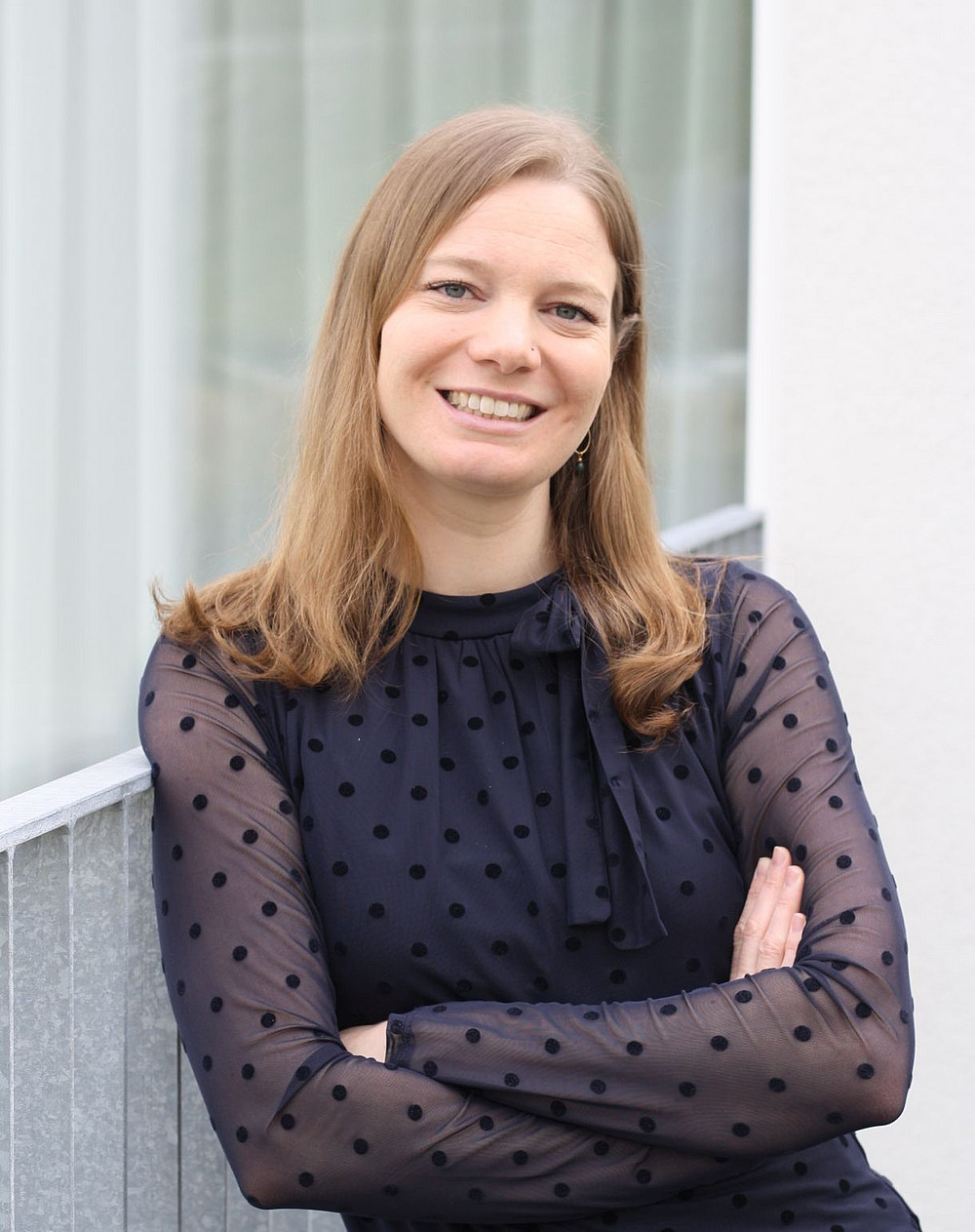
Why are experience abroad and international networking important? You are also
Erasmus+ coordinator for Spain.
That's right, I'm the contact person for students who want to study in Spain for a semester or a year. The most important argument for this is, of course, improving your foreign language skills. In addition, every experience abroad is a gain - on a personal and professional level! You grow beyond yourself and not only get to know a new culture, but also gain new perspectives on your own culture from the outside. In addition to longer semester stays, there is now also the opportunity to go abroad for shorter stays (so-called Erasmus+ Blended Intensive Programs). In this context, I am particularly pleased about the long-term cooperation with the University of Granada within the Arqus network: I can already reveal in advance that this fall, students from Graz will once again have the opportunity to take part in a one-week course in Granada with an Erasmus+ scholarship.
I think international exchange is what makes Romance Studies so lively, brings us into contact with new research findings and connects us in Graz with the world on a professional and personal level. Sometimes you don't even have to leave Graz: the world comes to us from time to time in the form of visiting academics, guest lectures, summer schools or international conferences.
What motivated you, what attracted you to this visiting professorship in Austria? Do you already have any links with Austria or the University of Graz?
Professor of French in the US, I'm also a New Yorker with Swiss roots. So my perspective on French has always been "diasporic", and as a literary historian, I see myself as a kind of anthropologist of the past. This perspective has given me a certain freedom of thought, since the history, ideas and texts I study are not my own. It therefore seemed very interesting to continue this look at French literary but from Austria, with colleagues and students who speak French, but are not necessarily French. I was particularly attracted by the teaching offered by this Graz-UMN partnership. Working with European students will certainly give me fresh ideas.
What are your current research priorities? What themes and perspectives are you particularly interested in teaching?
My current research focuses on two distinct subjects. First, I'm continuing to work on the relationship between violence and aesthetics in wartime (1620-1650). Through an intermedial approach strongly influenced by performance studies, I'm seeking to better understand how art - be it theater, engraving, epistolary writing or diaries/memoirs - proposes a model of how society engages with and integrates violence through specific genres, such as political tragedy or the "four seasons" in painting.
Second, my research addresses a question that might seem at once more theoretical and yet more urgent: why study women's history today? In the USA, and even in France, historical disciplines are in peril, and the multi-dimensional, anti-essentialist feminist movement seems to be increasingly eschewing "woman" as an epistemological category. So why study the history of women? My work on this question has enabled me to study feminist philosophers from early modernity to the present day.
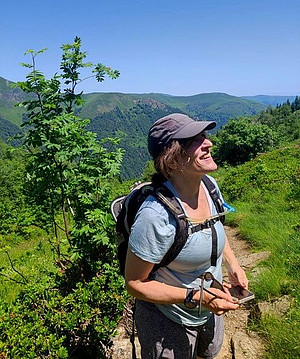
How can we imagine Romance language and literature studies in Minnesota?
Unlike some European models, where philology dominates language and literature studies, in the U.S. we favor philosophical, sociological, intermedial and cultural approaches. In a typical French department, you'll find specialists trained in literature, but who use a wide variety of approaches and sources in their courses: cinema, theater, even art history. Teaching is quite free, and for the most part we avoid lectures in favor of a more varied and dynamic pedagogy. That said, I'm not sure our approach always offers the best results!
You dealt with reading in your Master's thesis. Why did you choose this topic?
I chose the topic of reading because I enjoy reading myself in my free time, especially books in foreign languages. Another reason for choosing this topic was a seminar at the University of Graz, which I attended before writing my Master's thesis. One of the topics covered in this seminar was "Extensive Reading". I then worked as a language assistant at a school in Spain, where extensive reading was part of the daily timetable. This enabled me to carry out a study. This also led to the topic of my Master's thesis.
You collected some of the data in Spain. What advice would you give to students who want to do research abroad?
In order to conduct research abroad, I recommend above all to allow enough time for the preparations, as a lot of bureaucratic steps have to be taken in order to be able to carry out a study or a project. A detailed application had to be submitted to the Spanish Education Directorate for approval of the research project. As a response can take up to 3 months, this should be included in the preparation time. It is also advisable to be on site in person during the implementation and to be able to follow the project.
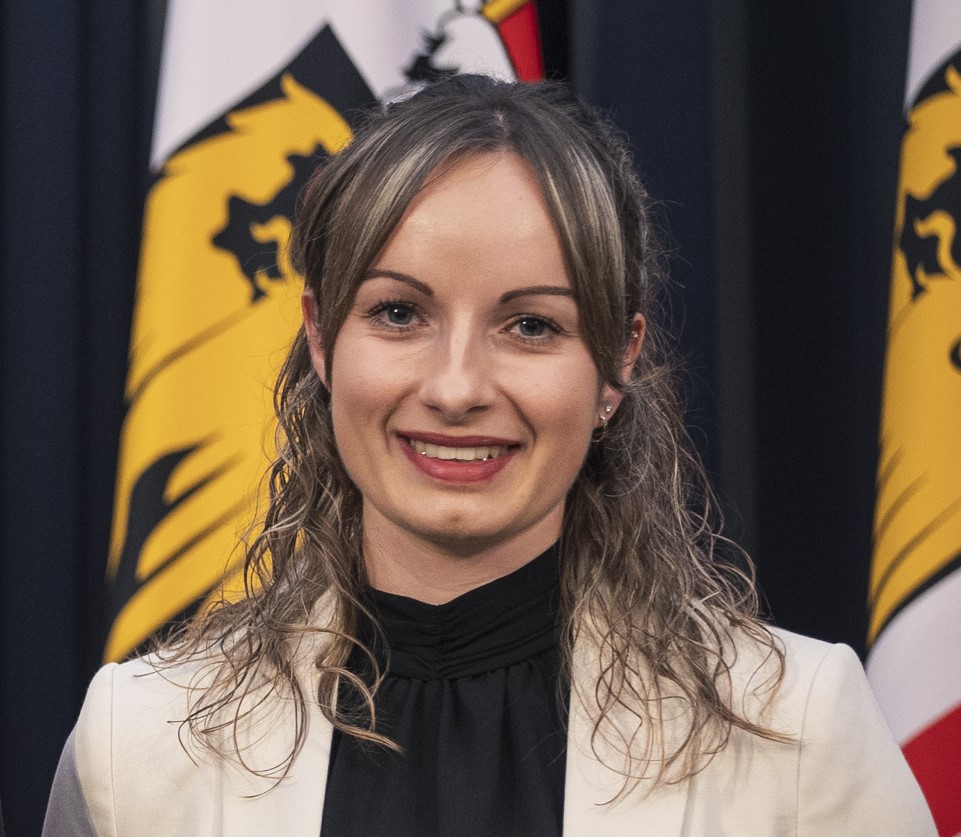
What do you take away from your Master's thesis for your own teaching practice?
In the course of my Master's thesis, I studied the Extensive Reading method in great detail, which is why I now want to incorporate it into my own Spanish lessons and, if possible, continue to do so within the school. The positive results of the reading project and the equally positive feedback from the students made me realize how important independent reading of self-selected texts is for reading motivation and reading attitudes when learning a foreign language.
You are an expert in AI and now even advise the Austrian Ministry of Education in this regard. A question that you absolutely have to ask such an expert: Do we really still need the human brain? And if so, what for?
An exciting question that is not so easy to answer. The intelligence in artificial intelligence actually has little to do with the understanding of intelligence that we get from so-called intelligence tests, for example. Artificial intelligence - similar to the human brain - is about neural networks and what they are capable of achieving, data analysis for example. Algorithms and a certain degree of regularity are involved. But when we learn, it's not just about rules and algorithms. Furthermore sensory impressions, emotions, irony and sarcasm or the discretionary scope for exceptions to rules are currently still difficult to process for an AI.
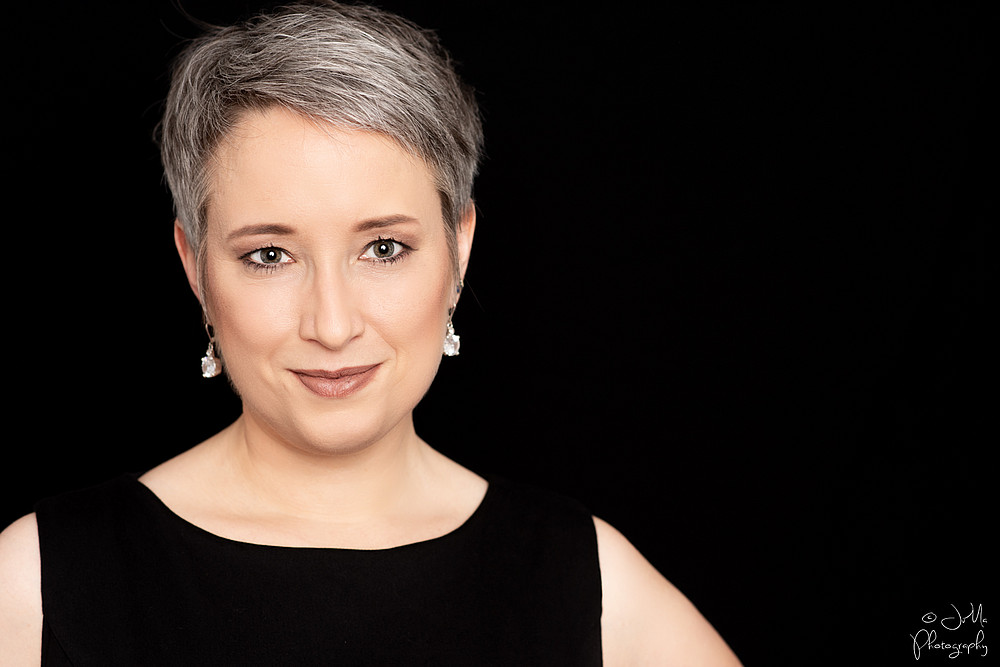
When it comes to learning foreign languages, opinions on AI are divided. Is it a blessing or a curse that so much can now be done by algorithm? The days of the vocabulary book definitely seem to be over...
I think it's wrong to think in either/or terms. AI is both a curse and a blessing. It gives us new opportunities to communicate with others or to provide individual support and cognitive relief. But it also shows us where we need to rethink old structures. Or discard them altogether. The days of the vocabulary book are not over. But writing down translated terms in two columns is. Where is the context? Where is the multimodality? Handwriting per se is a wonderful thing that activates different areas of the brain, uses motoric skills and requires special coordination of the hand, brain and eyes. AI can help us with visualizations and contexts. It is an aid. We have to learn how to use it. Responsibly and maturely.
As an assistant professor of language and media didactics, you prepare students career as a teacher. You certainly have the ultimate tips for situations in which 30 students are loudly discussing important things in the classroom, the projector isn't working again, the school network has crashed and the last bits of chalk have just been trampled on the floor...
According to Piaget, a delightful impression of a good learning space, given that learning means conversation and discourse and learning is about building on what is already there, is, accommodation and assimilation. The German word "Unterrricht" is a terrible word per se with a top-down metaphor. However, learning actually takes place at eye level. If the media described above fail at first glance, then let's take the most important media and put it at the center: the human. There are many methods that work without media and promote discourse. Icebreakers to attract attention, speed dating or elevator pitches, world cafés or simply a people memory. A small fishbowl would also be possible. There are so many methods that are beneficial for learning. That's why I always give "my" students the following advice: have a plan B, a plan C and a plan D - at least. Playful approaches usually work - such as the game Activity in six groups (for 30 students). The students in the groups have to quickly write the terms from the current topic area on cards, and the game can start within five minutes. If you really don't have any chalk, you can't draw on the board, but you can always do it on a piece of paper. Media didactics is so great because it combines the analog and the digital. And thus it harmonizes perfectly with language didactics.
If you had to describe your academic subject to your family, how would you describe it?
Reading reading reading writing writing, reading reading reading reading writing writing writing, okay and then a bit of talking cleverly (laughs)... It really is a great privilege to be able to study literature at the Deptartment of Romance Studies at the University of Graz and thus - in my case - to be able to explore the diverse Spanish and French-speaking regions of the world in stories and fictions, in texts or visual arts such as film. Consequently, I would try to explain this to my family: Literary scholars like me are people who want to unravel the expressions and imaginary worlds of societies and cultures in the past, present and sometimes even the future (let's think of science fiction literature). Understandable? Well, to some extent.
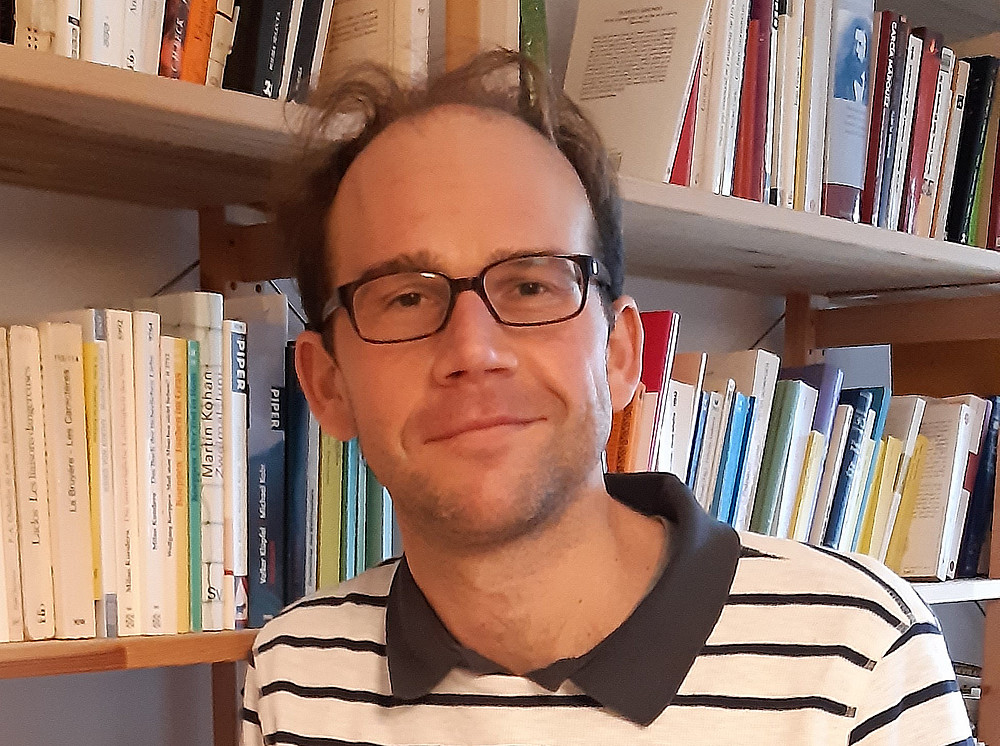
Your vision: You are currently the head of the Department of Romance Studies. Where do you see Romance Studies in five years' time?
Yes, indeed, for the past two weeks I have been able to head the Department of Romance Studies at the University of Graz, which I am extremely satisfiied with and which, together with my excellent colleagues, is a great pleasure. Romance Studies with all its languages and subject areas (linguistics, literature, didactics, cultural studies and not forgetting the all-important training in Romance languages) is of course the most beautiful discipline of all, that goes without saying. However, "discipline" is certainly the wrong term; rather, Romance studies is a kind of "interdiscipline" and "transdiscipline", as it brings the most diverse languages and literatures of the global Romance world into a dialogue and illuminates Romance cultures from different academic perspectives. Based on a common, binding foundation, Romance studies is at the same time the scene of diversity and alterity par excellence. It is precisely this internal interdisciplinarity and transdisciplinarity that has always characterized it, distinguishes it from the individual philologies and must be emphasized as its great quality. In order to be successful and attractive to students in five years' time, Romance Studies must also renew itself and venture into previously less trodden terrain, no question. This means taking up highly topical issues such as the world's ecological and political crisis scenarios or the (media) technological transformations in the field of digitalization and artificial intelligence. However, this also implies a continuous survey and revision of the study structures and study programs so that they are up-to-date and address the expectations of today's Austrian and international first-year students. In any case, I am confident that in five years' time, Romance Studies will be where I think it should be, at the heart of the Faculty of Humanities and at the same time networked with the world. Perhaps this is more of a vision...
Let's take a look into your future: what would you like to focus on in your research in the future?
I will undoubtedly continue to pursue certain subjects of my previous research and work on French- and Spanish-language poetry of the modern/postmodern period, on transatlantic discourse and text transfers and on the multi-layered mediality of literature. In the near future, I would like to intensify my exploration of the comical is modelled in literature and in related arts and media, no joke????; in this area, I am helping to build a small research network. In addition - and this is very important for me to emphasize - I have been very inspired by initiatives at our department and in the faculty. Together with V. Richter, an excellent colleague, we will soon be organizing an international conference on the politics of affects on the theater stage, which will certainly lead to further activities. I am also very pleased to be participating in the faculty focus area on Trans-Mediterranean Entanglements, which is excellently led by U. Gärtner and S. Schneider, and will deal with the global dimensions of the Mediterranean. It is no less invigorating to contemplate with wonderful colleagues from Graz about transformations of the human in the face of technological and ecological upheavals and to play through ways of thinking, writing and narrating beyond the human, or at least beyond anthropocentrism. Last but not least, a very esteemed Viennese colleague and I are currently planning a joint research project; but I'd better not tell you about it yet, because, as we all know, you shouldn't announce something that is still in the making, like counting your chickens before they hatch....(laughs).
What is the appeal of Latin America for the literary scholar Verena Richter?
I would describe this attraction as a certain closeness that is nevertheless very distant (in a very free appropriation and prosaic modification of W. Benjamin's definition of aura, if I may be so bold...). By proximity, I am referring to the penetration of Latin American literatures and cultures by European patterns, especially during the colonial period and the early phase of independence in the 19th century. At the same time, however, this is always linked to the experience of cultural difference, without wanting to tip over into exoticization. This is because Latin American literary and cultural history (and histories) function differently due to the mestizaje of different cultures caused by colonization, slavery and the associated forced migration, as well as processes of transcultural exchange. This results in an incredibly fascinating field of tension - and often also a different view on European narratives. Of course, we must never forget the suffering and exploitation that these processes have caused for an immense number of people.
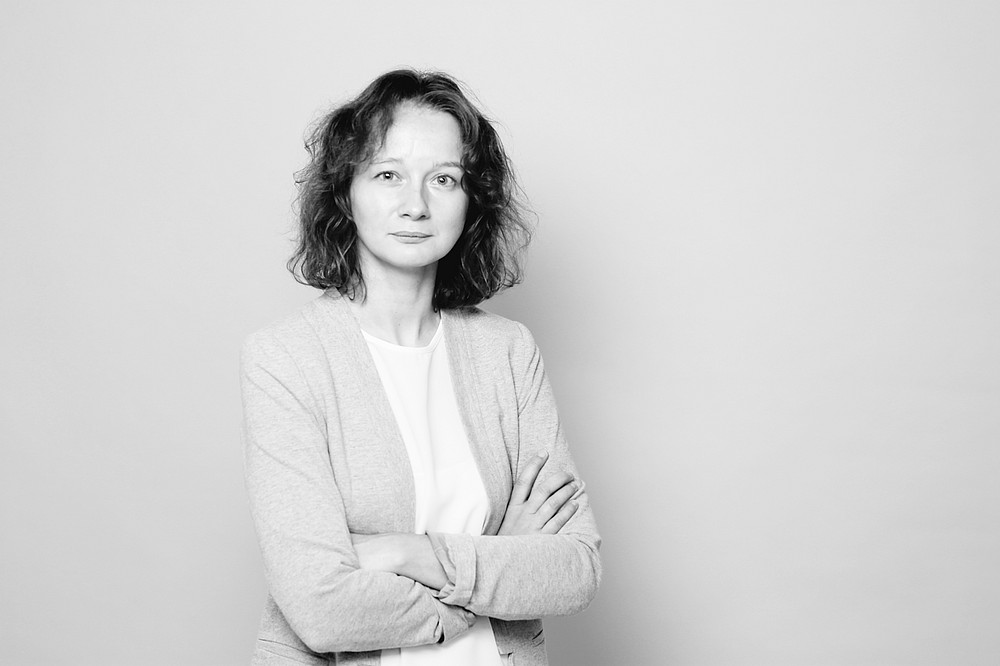
The last trip was to Buenos Aires. Why did you go? What are you taking away from the trip?
In my habilitation project, I am investigating the role of theater on the Río de la Plata, and especially in Buenos Aires, in the context of Latin American nation building. For this reason, I made my way across the Atlantic this summer (2023) to enter into a closer exchange with colleagues at the Universidad de Buenos Aires who are working on 19th-century Hispanic-American theater - unfortunately, there is hardly any research on dramatic texts from this period in German-speaking countries. In addition to the exchange, the stay also served the purpose of researching documents in the libraries and archives that I would otherwise not have had access to. This primarily concerns non-digitized newspapers, but also manuscripts and prints of theater texts that were performed in Buenos Aires at the beginning of the 19th century. What I take away from the trip are wonderful encounters, deeper insights into early theatrical culture in 19th century Buenos Aires and the desire to fly to Buenos Aires a second time for a longer research stay - during the one month of my stay, I came across an incredible amount of material, only a very small part of which I was able to sift through.
Let's look to the future: Where will the next (literary) trip take you?
The last excursion took me to Saarbrücken, at Saarland University, just last week. Janett Reinstädler, Professor of Romance Literary and Cultural Studies with a focus on Hispanic Studies, had invited me to give a guest lecture as part of her introductory lecture on Latin America. I spoke about my habilitation topic. The next literary excursion takes me to New York: I currently have Los rostros de la salsa (2021) by Cuban author Leonardo Padura on my bedside table. It's a book of interviews with the protagonists of salsa, a mixture of rumba, Afro-Cuban jazz and bossa nova that goes back to Cuban emigrants in New York. Padura's interviews create a wonderful portrait of this music and its protagonists. Another literary excursion also takes me to France, with Les Années (2008) by French Nobel Prize winner Annie Ernaux, which has long been on my list of books to read.
![Laura Irouscheck ©Next Wave Visuals [@nextwavevis] Profile Laura Irouschek ©Next Wave Visuals [@nextwavevis]](https://static.uni-graz.at/fileadmin/_files/_gewi_sites/_romanistik/Persoenlichkeiten/uni-graz-romanistik-irouscheck.jpg)
What made you decide to study French?
I discovered my love of languages as a teenager. I was fascinated by the possibility of expressing myself differently in various languages, the cultural and artistic dimensions of language and the socially unifying aspect of communication through language. My French teacher in secondary school, who inspired me greatly, was probably the driving force in me wanting to study the French language. I also love the melody and sounds of the French language. Pour moi, c'est simplement la langue la plus belle du monde.
What fascinates you most about French literature?
I am fascinated by literature in general. This fascination is probably triggered by the close interplay of the three literary effects - entertainment, instruction and the arousal of emotions. However, I am particularly drawn to works that express their ideas through artistic and metaphorical passages, because for me literature is always about art and creativity. I think that there is something very artistic, aesthetic and sensual about the French language, which makes French literature particularly radiant in this respect.
How does it feel when you receive an award for a text? What were your thoughts at the moment you found out about the award?
As the British writer Anne Brontë writes in her novel The Tenant Wildfell Hall (1848, Chapter 9): "Perhaps you cannot do it to satisfy yourself, but you may and do succeed in delighting others with the result of your endeavors."
Contrary to the first half of this quote, I personally wrote my critical review with a great deal of pleasure. Thus, it was all the better to learn that others were also able to enjoy the result. And of course an award like this also brings with it a feeling of pride and validation. I remember responding to the Prix de la Critique 2023 as soon as I was informed of the award with words such as "Quel honneur [...], je suis profondément touchée que ma critique ait été si bien reçue !" A very fulfilling experience indeed...
You are studying Romance philology, why did you make that choice?
I discovered my enthusiasm for (foreign) languages at an early age. To this day, I am grateful to my English teacher from lower school, because she recognized and encouraged my talent back then. Although I lerned two Romance languages, namely French and Italian, in secondary school, I came across Romance studies by chance. Fortunately! I soon realized that it was exactly the right thing for me. I love language above all because of how much it allows us to do. We can express ourselves and communicate with others, create clarity or confusion. For me, communication is particularly important because it enables us to cross borders: from our home to the world, from me to you.
You have taken on the role of student representative for Romance Studies, what motivated you to do so?
I could tell a longer story here, but I'll try to keep it short. After the first "BiblioNight" (Long Night of Libraries), I was talking to a professor about the event and it came up that there hadn't been student representatives for some quite time. It was a long process, but a year later I stood as a candidate in the ÖH elections. Since July 1, 2023, a student representative body for Romance Studies has been in office again after a long time. Studying only works with students and that's why it's so incredibly important to have official representation. In my time at the Department of Romance Studies so far, I have acquired a lot of knowledge about studying and would now like to actively support my fellow students, whether they are freshmen or old hands.
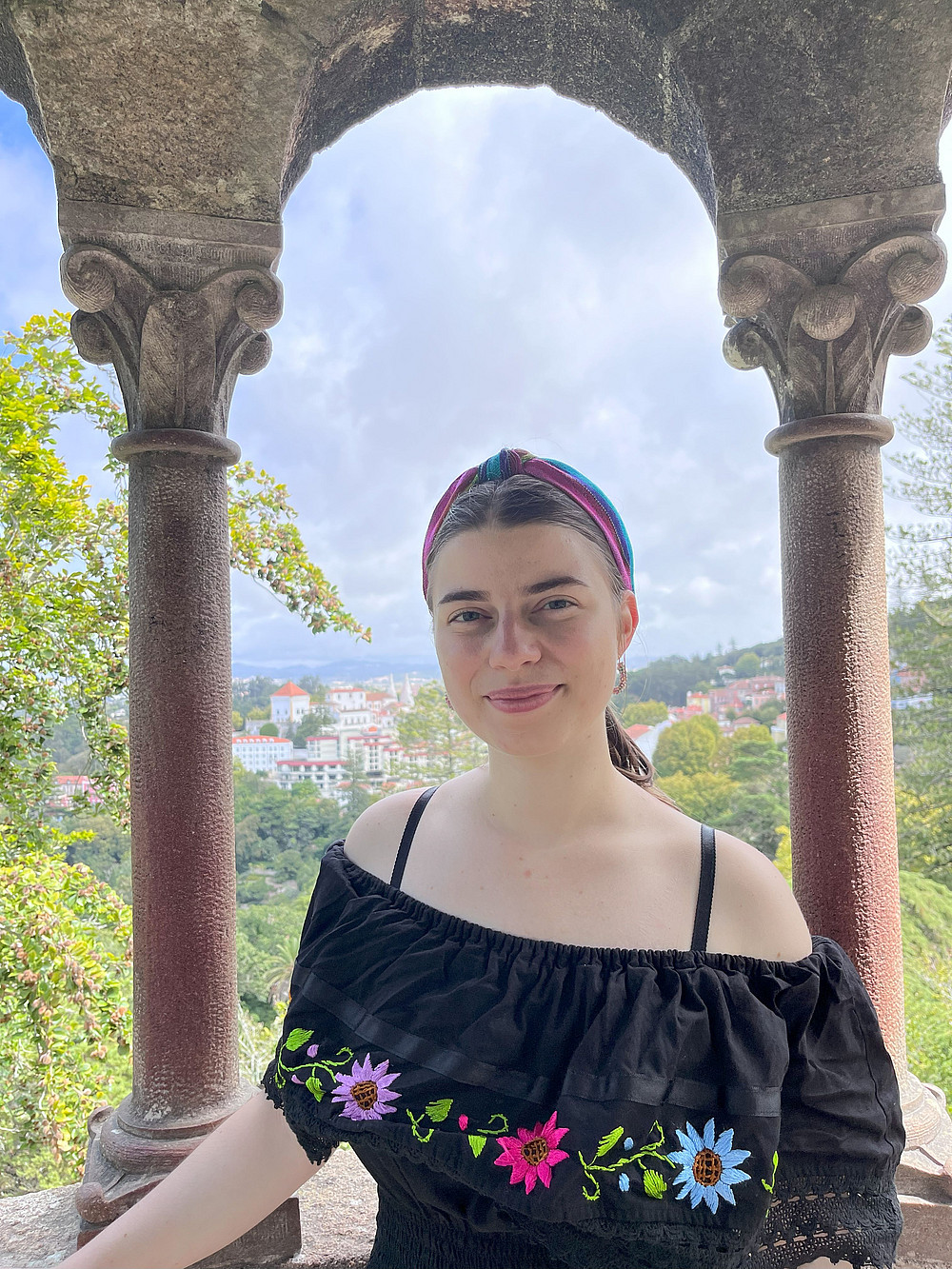
Where can you be found and what can/would you like to achieve for your fellow students?
Unfortunately, we do not have a fixed room at the moment, but every Friday from 9:30 am until 2:00 pm, we have the room 33.3.074 at our disposal, where we hold consultation hours by appointment. Both lecturers and students can contact us by email at romanistik(at)oehunigraz.at. We also have an Instagram account where we share information, events and more - you can also send us a DM there. We are still working on our website at the moment, but we will soon be adding information on an ongoing basis. Otherwise, you are welcome to contact us personally at any time when we are out and about at the department!
As Chair of the Romance Studies Student Council, I would like to be a strong voice and point of contact for the students of our department. Furthermore, it is very important to me to connect the students with each other and to strengthen the community, at the Department of Romance Studies, at WALL and soon also beyond faculty boundaries! "Wallnachten", our first big event in collaboration with the student representatives for Translating & Interpreting and EBW, was a complete success, with many new events already being planned - stay tuned!
How long have you been at the University of Graz and where did you work before that?
I have been teaching French as a foreign language at the University of Graz for over 13 years. My very first teaching experience in this subject was a two-month internship in 2002 at the Sulkhan Saba Orbeliani Tbilisi State Pedagogical University in Georgia. After that, I worked for nine months as an intern in the cultural department of the French Embassy in Belgrade. The project I was responsible for was to develop the teaching of French in the non-philological universities of the Serbian capital. These two experiences encouraged me in my career choice and I then worked for about three years in Seoul, South Korea, first at the Alliance Française and then at Sookmyung Women's University and the Institut français de Corée. However, as I wanted to return to Europe, I then applied to the Department of Romance Studies at the Paris Lodron University of Salzburg, where I worked as a lecturer for four years. I have been employed at the Department of Romance Studies at the University of Graz since 2010.
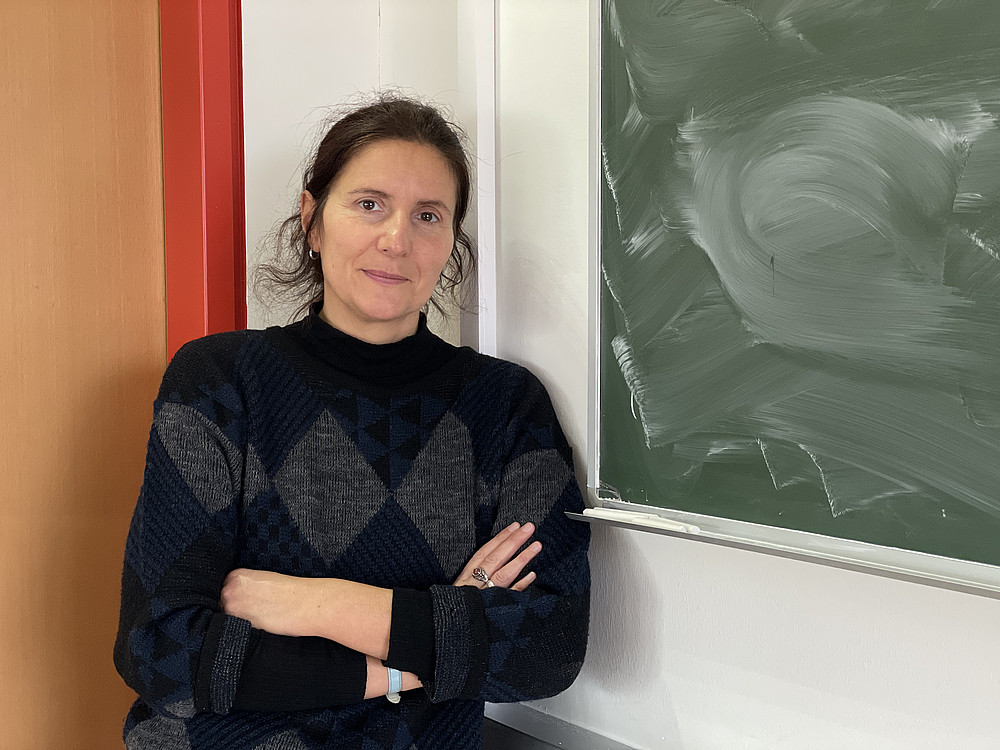
What exactly does a Senior Lecturer in French do at the Department of Romance Studies?
The main focus of my work as a Senior Lecturer is, of course, teaching. This consists of both written and oral lessons as well as grammar. As languages are always closely linked to the culture of a country, I also offer courses in cultural studies. In addition to carrying out small projects and supervising students, a large part of my work consists of creating my own teaching materials. This involves didactically preparing authentic material. I also try to establish a current connection to research using a variety of materials. This ranges, for example, from songs to commercials or comics to press drawings and press releases. The pedagogical approaches are varied and I thus follow my "eclectic maxim".
Of course, a large part of my working time is also taken up by proofreading administrative tasks, such as coordinating French language training and the Erasmus program with France.
What aspect of your work is particularly enriching for you?
Without a doubt: the exchange with the students. We all have a common interest: getting to know and learning foreign languages and cultures. But of course we have different approaches, experiences and interests... But this is exactly what creates a fruitful and exciting exchange in the classroom and beyond. The classroom thus becomes a place of mutual learning. We share an everyday life full of discoveries, projects and learning experiences, and everyone contributes to enriching the other.
How long have you been at the University of Graz?
I have been working at the University of Graz for quite a long time. I had my first job in 2002 as a student assistant in a research project led by Prof. Martin Hummel. From 2005 to 2008, I was in Stuttgart and Paris to complete my doctorate in a Franco-German graduate college. After completing my doctorate in 2008, I returned to the University of Graz. Since then I have been researching and teaching at the Department of Romance Studies in the field of French and Spanish linguistics.
What do you find fascinating about your field of research in Romance studies?
For me as a linguist, the Romance languages offer a fascinating field of activity in many respects. Here are a few examples:
- Now that the Romance languages have been documented over many centuries, we can study how the languages change over time.
- The wide geographical distribution (with contacts to numerous other languages and language families) allows us to research language contact phenomena.
- The Romance languages have many similarities as well as numerous differences, which can be used to investigate which linguistic features must occur together within individual languages and which do not.
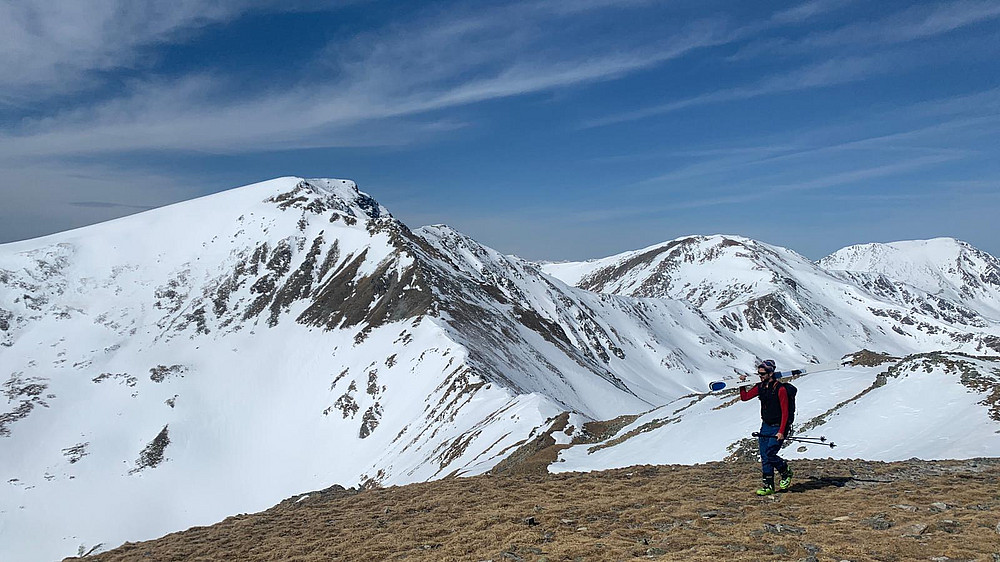
You have an interesting interdisciplinary project with colleagues, can you tell me about it briefly?
I am part of a group of researchers from the Universities of Graz and Vienna that was awarded a large collaborative project with eight different sub-projects at the end of November 2023 (CRC: Language between Redundancy and Deficiency). In this project, we investigate the extent to which language can be understood as a rule-based system given its flexibility (and frequent language variation). We are particularly interested in the relevance of the factors of redundancy and deficiency for this flexibility.
Why did you choose Romance Studies?
I chose Romance Studies because I have a passion for the Italian language, culture and literature. Studying Romance languages offers a unique insight into the rich history, fascinating art and vibrant culture of Romance languages. Our major allows students to acquire languages, develop a deep cultural understanding and foster analytical skills and creativity through the study of linguistics and literature.
What made you decide to take on the role of Romance Studies representative?
I decided to become part of the student representatives because I would like to be an active part of our academic community. I believe that we can achieve a lot through collaboration and exchange. My goal is simply to be there and to be a voice for the students. I want to help ensure that the Department of Romance Studies remains a place where everyone feels welcome and supported.
Where can you be found and what would you like to achieve for your fellow students?
You can find us as student representatives on the website https://oehunigraz.at/romanistik/ and on Instagram at @stvromanistik.grz, feel free to send us a message there! We also spend a lot of time at the Department of Romance Studies and can be approached directly by you there.
We regularly organize Romance Studies get-togethers and are your mouthpiece at the department.
